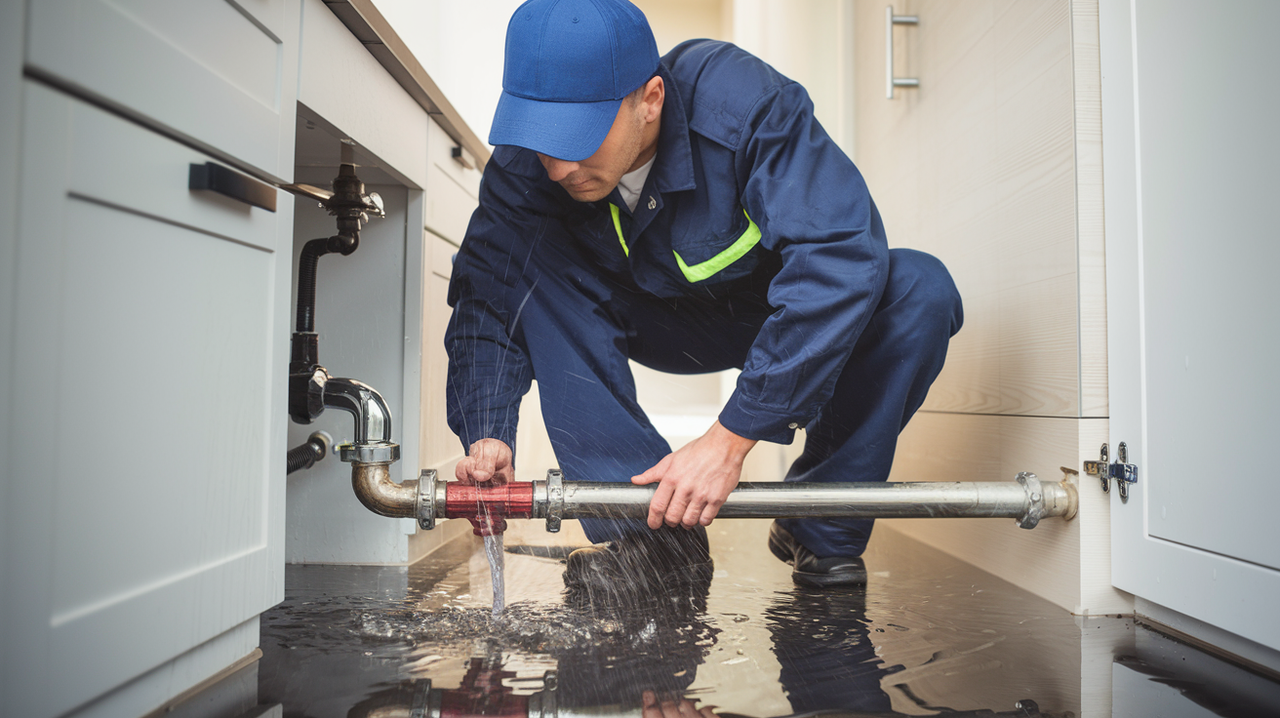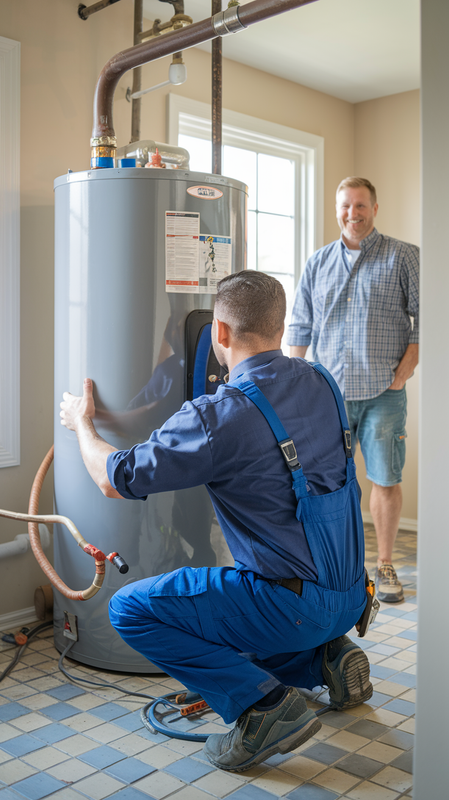Water damage is a common yet often underestimated risk that homeowners face. It can stem from various sources, including leaks, flooding, or even poor drainage systems. The effects of water damage can be devastating, leading not only to costly repairs but also to health issues Westwood plumbing emergency caused by mold and mildew. This article delves deep into understanding water damage risks and explores how you can prevent them through DIY repairs.
1. What Is Water Damage?
Water damage refers to the destruction of property and belongings due to water intrusion. It can occur suddenly, as in the case of a burst pipe, or develop gradually from long-term leaks. The consequences range from minor inconveniences to major structural issues.
1.1 Types of Water Damage
Clean Water Damage: This typically results from a broken water supply line or rainwater. Grey Water Damage: Caused by water from appliances like washing machines or dishwashers. Black Water Damage: This is the most severe type, arising from sewage backups or flooding.1.2 Signs of Water Damage
- Stains on walls or ceilings Musty odors Peeling paint or wallpaper Mold growth
2. Understanding Water Damage Risks and How to Prevent Them with DIY Repairs!
Understanding the risks associated with water damage is the first step in prevention. Common causes include plumbing failures, roof leaks, and foundation issues. By identifying these risks early on, you can take proactive measures to mitigate them.
2.1 Common Causes of Water Damage
- Leaky Pipes: Often one of the most frequent culprits in residential settings. Roof Leaks: Deterioration over time can lead to significant issues during rain. Poor Drainage Systems: Improper landscape grading may cause water pooling around your home.
2.2 How Can You Prevent Water Damage?
Preventing water damage involves regular maintenance checks and immediate action when problems arise:
- Regularly inspect roofs for missing shingles or wear. Keep gutters clean and ensure proper drainage flow away from your home’s foundation. Monitor your plumbing system for signs of wear.
3. Plumbing Basics: Know Your System
Before diving into repairs, it's essential to understand your plumbing Repair system thoroughly.
3.1 Components of Your Plumbing System
Your plumbing system consists of various components including pipes, fixtures, appliances, and drainage systems.
3.2 Identifying Plumbing Problems Early
Being vigilant about potential problems can save you money in the long run:
- Listen for unusual sounds in pipes. Observe unusual spikes in your water bill; this could indicate leaks.
4. DIY vs Professional Help: When To Call Local Plumbers in Westwood?
Deciding whether to attempt a repair yourself or call professionals requires careful consideration.
4.1 Benefits of DIY Repairs
Engaging in DIY repairs can save money and give you hands-on experience with your home’s systems. For example:
- You might ask yourself: "How do I fix a leaky pipe without replacing it?" Simple fixes like using epoxy putty can work wonders for small leaks without replacement.
4.2 When To Call In The Experts?
Certain situations warrant professional help:
- Major leaks Issues requiring specialized tools Problems affecting structural integrity
5. Common Plumbing Issues at Home
Every homeowner should familiarize themselves with common plumbing problems that could lead to water damage.

5.1 Leaky Faucets and Toilets
These are often easy fixes but can waste significant amounts of water if left unattended.
5.2 Clogged Drains
A clogged drain not only causes inconvenience but may also lead to backflow issues causing further damage.
How do you unclog a severely clogged drain?
Utilize a combination of boiling water and baking soda or consider using a plumber's snake for tough clogs.
6. The Cost Factor: What Should You Expect?
Understanding the cost associated with plumbing repairs helps set realistic expectations for homeowners.
6.1 How Much Should Plumbing Repairs Cost?
Repair costs vary widely based on location, complexity, and materials used:
| Type of Repair | Average Cost | |-------------------------|--------------| | Minor Leaks | $150 - $300 | | Clogged Drains | $100 - $250 | | Pipe Replacement | $500 - $2000 |
7. Tools Every Homeowner Should Own
Equipping yourself with basic plumbing tools can make DIY repairs easier:
| Tool | Purpose | |-------------------------|------------------------------------------------| | Pipe Wrench | Tightening/loosening pipes | | Plumber's Snake | Clearing clogs | | Teflon Tape | Sealing joints |
8. Essential Maintenance Tips
Routine maintenance plays a crucial role in preventing water damage:
8.1 Inspect Regularly
Conduct periodic checks on all visible pipes and fixtures for signs of wear or leaks.
8.2 Educate Yourself
Stay informed about common plumbing issues—knowledge is power!
9. Learning From Professionals: What Do Plumbers Use Most?
Professional plumbers have their preferred tools and techniques that help them tackle various tasks efficiently.
What is the most common tool used by plumbers?
The pipe wrench stands out as an essential tool for any plumber—it's versatile enough for various applications!
10. Emergency Preparedness: Westwood Emergency Plumbing Services
Water emergencies require immediate attention; knowing who to call is vital!
What should I do during a plumbing emergency?
Shut off your main water supply immediately! Then contact top-rated plumbers in Westwood who offer emergency services around the clock.
FAQs
Q1: Can plumbing be done DIY?
Yes! Many minor plumbing tasks such as fixing leaky faucets can be done safely by homeowners without expert assistance if they follow proper guidelines.
Q2: Is it safe to do your own plumbing?
While many small jobs are safe for homeowners to handle, complex issues involving gas lines or electrical components should always be handled by licensed professionals like those providing Westwood plumbing services.
Q3: Can I use flex seal on a leaky pipe?
Flex Seal can provide temporary relief for small leaks; however, it’s best used as an interim solution while awaiting professional help.
Q4: What is one of the most common problems with pipes?
Clogged drains are prevalent among homeowners due to hair buildup, grease accumulation, etc., which often leads to more severe issues if not addressed promptly!

Q5: How do I fix my water pipes at home?
Start by identifying where the leak is coming from! Use appropriate sealing techniques based on the material—PVC may require different methods than copper piping!
Q6: Can a handyman fix a leaky pipe?
Yes! Many handymen are skilled enough to handle minor plumbing repairs effectively while ensuring safety standards are followed throughout!
Conclusion
Understanding water damage risks enables homeowners not just to respond but proactively engage in preventative measures through effective DIY strategies! While there’s plenty that you can tackle on your own—from fixing leaky faucets using simple tricks like Teflon tape—to handling more extensive projects that may require calling reputable licensed plumbers Westwood NJ—you now possess valuable insights into protecting your greatest asset—your home! So roll up those sleeves; armed with knowledge about “Understanding Water Damage Risks and How to Prevent Them with DIY Repairs!” you're ready for anything life throws your way!